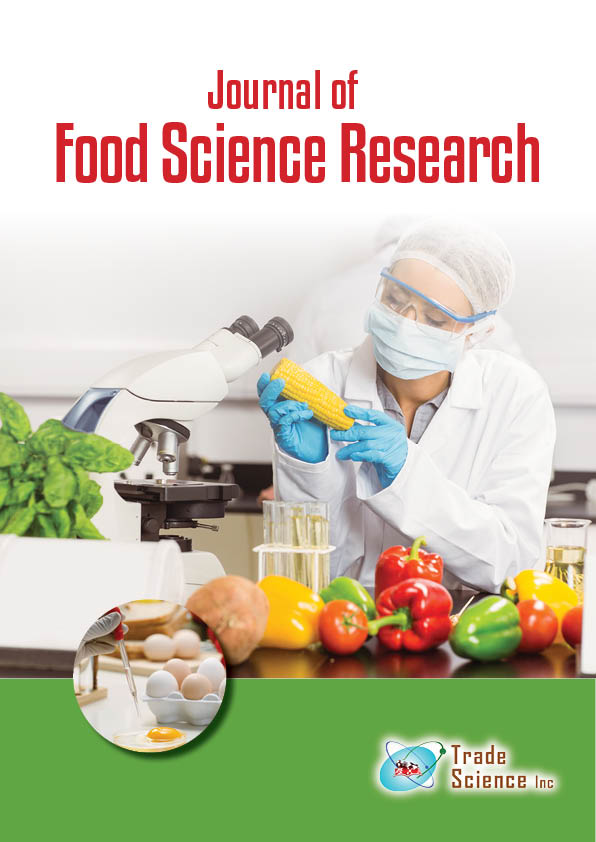抽象的な
Shelf life study of vegetables using probiotic Lactic Acid Bacteria isolated from Ethiopian traditional fermented foods and beverages
Desalegn Amenu Delesa
Lactic acid bacteria (LAB) are widely used to preserver the foods, and extend the foods shelf life to provide better quality and safety. Hence the main objective of this study is focus on the use of lactic acid bacteria as a potential food preservative to inhibit vegetables spoilage microorganisms for better shelf life enhancement. A total of 120 LAB isolates were isolated from different Ethiopian traditional fermented foods and beverages and characterized for various morphological, biochemical, fermentation, antimicrobial activities and probiotic properties. Based on their potential antimicrobial activities and their promising probiotic potential, for this activities only four LAB isolates (LABB01, LABB16, LABB35 and LABBr33) were selected and applied on various vegetables both as bio protective agents and bio preservative to prolong the fruits and vegetables shelf life. To evaluate the efficiency of the LAB isolates as bio protective, they were tested under in-vitro conditions agonists four selected pathogens isolated from the vegetables viz., E.coli, S.aureus, L.monocytogenes and S.pyogens. So, the isolates which were promising against spoilage microorganisms under in -vitro conditions were chosen for shelf life enhancement study of fruits and vegetables under incentive condition. Out of four selected isolates, LABB16 was more effective in controlling the spoilage and enhancing the shelf-life of all the fruits and vegetables with the minimum of three weeks. The isolate did not produce any undesirable effects on fruits and vegetables, such as browning and off odours. As the result of the present study. It can be possible to conclude that LAB can be used effectively to increase the shelf life of fruits and vegetables decreasing the percent of spoilage.
